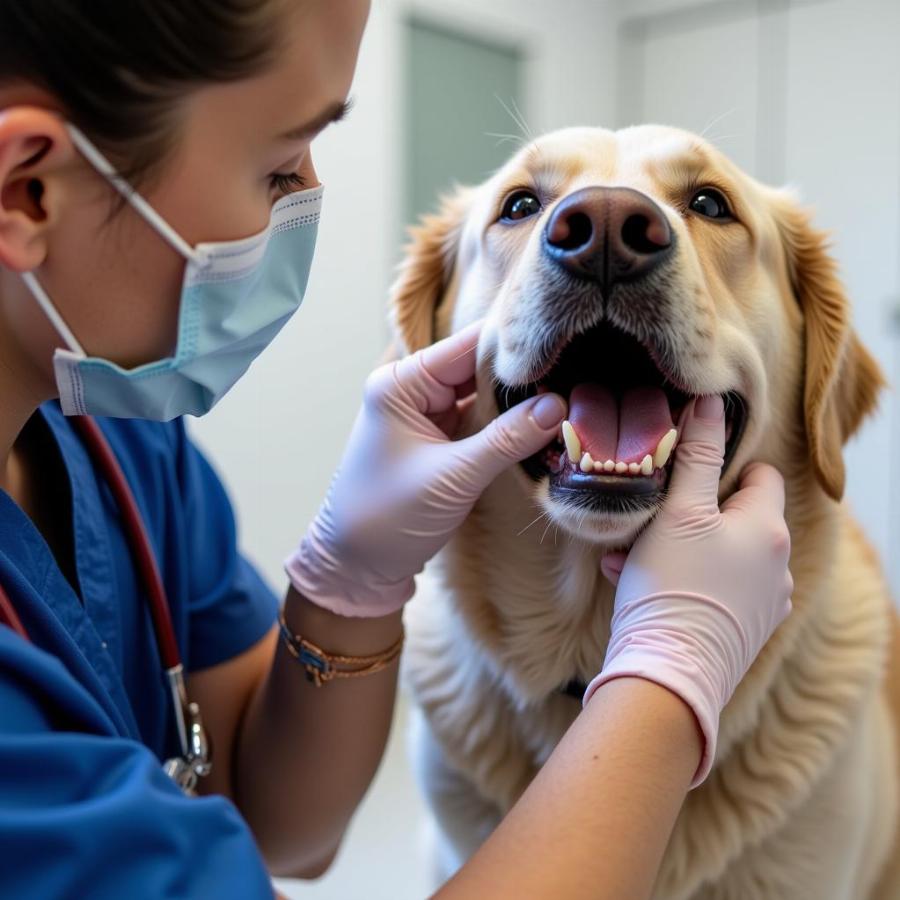Short rib bones are undeniably tempting treats for our furry friends, but can dogs eat short rib bones safely? This is a crucial question for any dog owner, and understanding the risks and benefits is essential for responsible pet ownership. While dogs have a natural instinct to chew on bones, not all bones are created equal. Some bones can pose serious health risks, while others can be a healthy addition to a dog’s diet. This article will delve into the specifics of short rib bones for dogs, providing you with the information you need to make informed decisions about your dog’s health and well-being.
Understanding the Risks of Short Rib Bones for Dogs
While the enticing aroma of cooked short ribs might tempt you to share the bones with your canine companion, doing so can be extremely dangerous. Cooked bones, including short rib bones, become brittle and can easily splinter. These sharp fragments can cause a range of serious problems, from choking hazards and mouth injuries to gastrointestinal blockages and perforations. Even seemingly small splinters can lodge in your dog’s throat, esophagus, stomach, or intestines, leading to painful and potentially life-threatening complications.
Are Raw Short Rib Bones Safe for Dogs?
Raw short rib bones are generally considered safer than cooked ones because they are less likely to splinter. However, even raw bones carry some risks. They can still pose a choking hazard, especially for smaller dogs or aggressive chewers. Additionally, raw bones can contain bacteria that could potentially make your dog sick. While a dog’s digestive system is designed to handle some bacteria, there’s always a risk of infection.
Safe Alternatives to Short Rib Bones
The good news is that there are plenty of safe and healthy alternatives to short rib bones that can satisfy your dog’s natural chewing instinct. These include:
- Durable chew toys: These are designed specifically for dogs and come in various shapes, sizes, and materials. Look for toys made from non-toxic materials that can withstand vigorous chewing.
- Dental chews: These can help clean your dog’s teeth and freshen their breath while providing a satisfying chewing experience.
- Frozen carrots or other safe vegetables: These can provide a crunchy texture that dogs enjoy and can help soothe teething puppies.
What to Do If Your Dog Eats a Short Rib Bone
If your dog manages to eat a short rib bone, monitor them closely for any signs of distress, such as vomiting, diarrhea, loss of appetite, or abdominal pain. If you notice any of these symptoms, contact your veterinarian immediately. Early intervention is crucial in preventing serious complications.
Can Puppies Eat Short Rib Bones?
Puppies are especially vulnerable to the dangers of short rib bones. Their smaller size and developing digestive systems make them even more susceptible to choking hazards and intestinal blockages. Avoid giving puppies any type of bone, including short rib bones.
Expert Opinion
Dr. Emily Carter, DVM, a renowned veterinary nutritionist, advises, “While it’s natural for dog owners to want to give their furry friends a tasty treat, it’s crucial to prioritize safety. Short rib bones, especially cooked ones, are simply too risky for dogs.”
 Veterinarian examining a dog
Veterinarian examining a dog
Conclusion
Can dogs eat short rib bones? The answer is a resounding no, especially when cooked. While raw short rib bones may seem less dangerous, they still present risks that are best avoided. Opt for safer alternatives like durable chew toys, dental chews, or frozen vegetables to satisfy your dog’s chewing needs and keep them healthy and happy. Remember, a little precaution can go a long way in protecting your beloved companion.
FAQ
- What should I do if my dog swallows a small piece of short rib bone? Monitor them closely for any signs of discomfort and contact your veterinarian immediately if you notice anything unusual.
- Are there any types of bones that are safe for dogs? Generally, it’s best to avoid giving your dog any type of bone, especially cooked bones.
- What are some good alternatives to bones for chewing? Durable chew toys, dental chews, and frozen vegetables are safe and satisfying options.
- Why are cooked bones more dangerous than raw bones? Cooked bones become brittle and are more likely to splinter, causing internal damage.
- Can I give my dog beef ribs instead of short rib bones? No, beef ribs, like short rib bones, pose similar risks to dogs.
- What are the signs of a gastrointestinal blockage in dogs? Vomiting, diarrhea, loss of appetite, lethargy, and abdominal pain are common signs.
- How can I prevent my dog from getting bones? Be mindful of what your dog has access to and educate family members about the dangers of bones for dogs.
You might also be interested in:
- can dogs have short rib bones
- can dogs eat pork chop bones
- why do dogs like laying in the sun
- can dogs have t bones
- dogs and beef rib bones
Beaut Dogs is your trusted source for all things related to dog care, providing reliable information on various breeds, health, nutrition, and training. When you need expert advice, contact us via Email at [email protected]. Beaut Dogs is committed to providing accurate and helpful information to help you provide the best possible care for your canine companion.